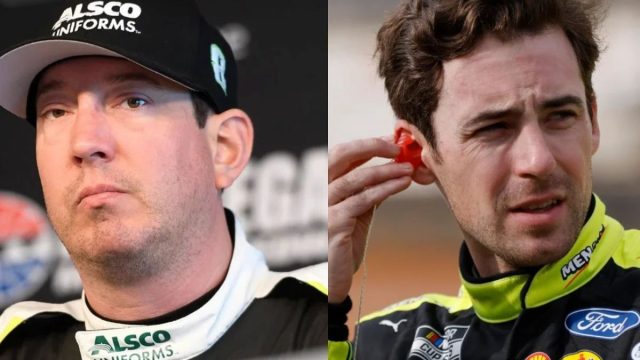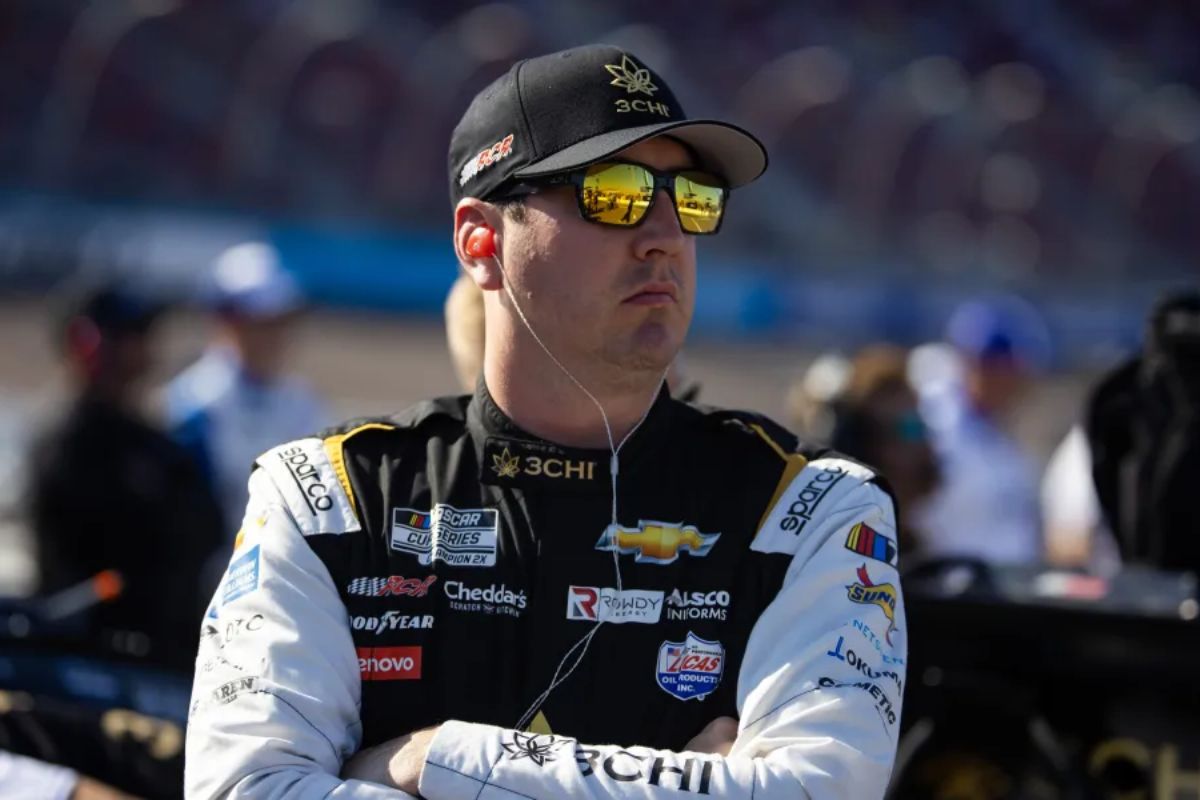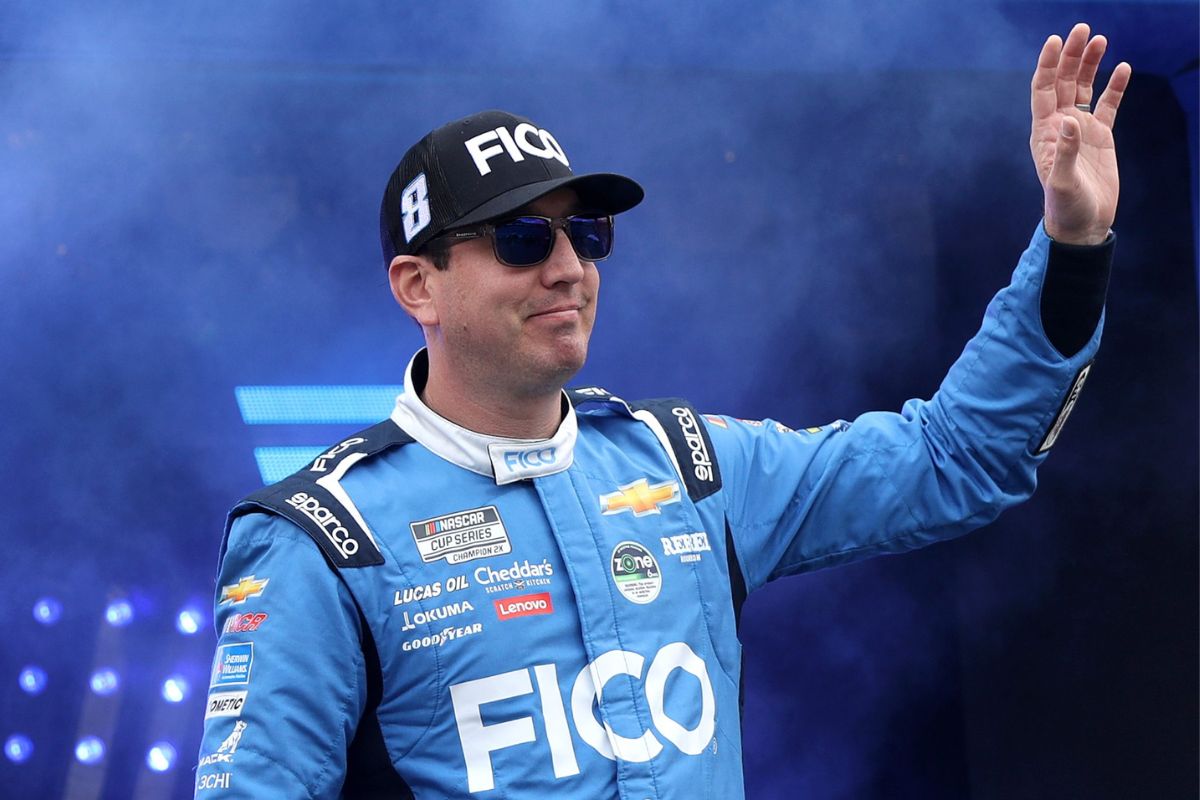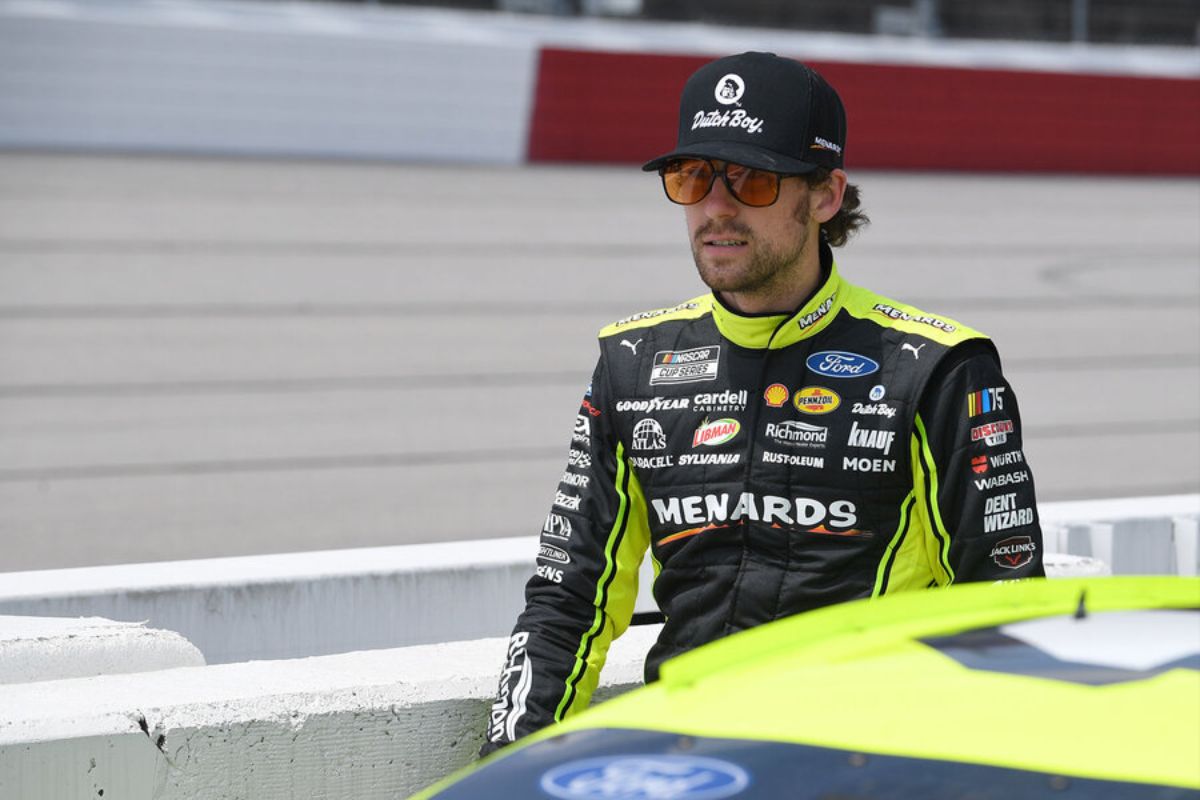Ryan Blaney Slams Kyle Busch’s Critique: In a recent and vivid exchange within the NASCAR community, Ryan Blaney has openly contested Kyle Busch‘s critical views on the direction of modern-era NASCAR. Busch, a seasoned driver known for his outspoken nature, has lamented what he perceives as the sport’s shift from its traditional roots. Contrarily, Blaney advocates for the series’ adaptations, arguing that these changes are crucial for the sport’s sustainability and appeal to a broader, more diverse audience. This debate throws into sharp relief the tension between preserving the legacy of NASCAR and embracing innovation to stay relevant in the competitive world of sports.
Key Takeaways
- Ryan Blaney defended NASCAR’s modernization efforts, contrasting Kyle Busch’s negative views.
- Blaney highlighted the importance of next-gen cars for competitive racing.
- He emphasized the role of driver personalities in attracting new fans.
- Blaney supported NASCAR’s strategies, including partnerships with gaming companies.
- He argued that these changes are crucial for engaging younger audiences and ensuring NASCAR’s future.
NASCAR’s Search for Superstars
In response to dwindling superstar presence, NASCAR has intensified its efforts to revitalize its driver lineup and attract a new wave of fans. Recognizing the significant role drivers play in fan engagement and the sport’s marketability, NASCAR has not only introduced next-generation cars but also actively participated in broader media engagements, such as Netflix documentaries, to highlight the personalities and talents of its drivers.
The focus on individual drivers is a strategic move, differing markedly from other sports where teams or clubs often overshadow individual athletes. In NASCAR, the driver is the star, and their ability to connect with the audience on and off the track is essential for the sport’s vitality.
Moreover, the introduction of next-gen cars is not purely about technological advancement but is also a part of a narrative to rejuvenate the sport’s appeal. These cars are designed to level the playing field, thereby placing a greater spotlight on the drivers’ skills and personalities. Through these integrated strategies, NASCAR aims to cultivate a new generation of superstars who can carry the legacy of the sport forward, ensuring its sustainability and growth in a rapidly changing sports entertainment landscape.
Ryan Blaney’s Perspective
Ryan Blaney contends that NASCAR’s efforts to deepen fan allegiance to individual drivers have not been sufficiently effective. Despite different initiatives aimed at highlighting personalities and backstories, the connection between new drivers and fans appears tenuous. Blaney argues that to truly cultivate a dedicated fan base, NASCAR must reassess and intensify its approach to engagement.
“We’re all superstars. […] Yes, Jeff Gordon through the ‘90s was the biggest star in anything, but times change. You don’t have guys winning 10 races anymore. This car doesn’t allow that, so how do you separate yourself to make yourself stand out? […] It starts with success on the racetrack and then the organizations marketing these drivers with how great they are at what they do, and then the drivers have to be willing to do it and be in that role. You don’t need to pluck out one person. There are a lot of us here and you can push it, you can make 36 superstars. I think that’s definitely possible.” Blaney said.
- Enhanced Media Coverage: More in-depth, personalized content about drivers could help fans form stronger bonds. This includes behind-the-scenes footage, driver diaries, and more interactive content that invites fan participation.
- Community Building Initiatives: Creating platforms and events where fans can interact directly with drivers could foster a sense of community and loyalty. This might include virtual meet-and-greets, fan Q&A sessions, or driver-led tutorials on aspects of racing.
- Youth Engagement: Targeting younger audiences with programs that introduce them to the sport through drivers could help build long-term relationships. Initiatives could include school visits, junior racing leagues, or educational content that ties into STEM subjects.
- Transparency in Storytelling: Fans often gravitate towards sports figures with whom they can empathize or whose stories resonate with them. NASCAR could do more to share the personal challenges and victories of drivers, making them more relatable and inspiring to the fan base.
Kyle Busch’s Take on the Issue
While Ryan Blaney emphasizes a more personalized approach to fan engagement, Kyle Busch offers a contrasting perspective, highlighting the appeal of having a dominant figure in the sport. According to Busch, the allure of NASCAR in past decades was partly due to the presence of standout drivers who consistently displayed top-tier performances, thereby creating a robust following. Referencing icons such as Jeff Gordon and Dale Earnhardt, Busch suggests that their era was marked by a kind of star power and competitive consistency that current dynamics in NASCAR seem to lack.
“I’m not sure what it is, but you have the die-hard fans of NASCAR, of Jeff Gordon, Dale Earnhardt, Rusty Wallace, Terry Labonte, Mark Martin, Harry Gant … you name it — guys from the ‘90s, mid-90s, late-90s, all of that.”
“[…] I don’t feel like we were able to transition a lot of the fans that were fans of those drivers into a William Byron fan, into a Kyle [Larson] fan, or whoever. They kind of all probably went away, just stopped following as much, which is hard to say because honestly, when you look at NASCAR, the fans love the drivers. The driver star power, that’s what brings people to the racetrack, is the drivers,” – Busch
Busch’s commentary sheds light on the current state of NASCAR, where recent seasons have seen a more diverse group of champions. This shift, he implies, might be impacting fan loyalty and the interest in the sport. While the diversity of winners can be seen as a validation of the competitive nature of modern NASCAR, Busch posits that the absence of a recurring dominant figure might lead to a dilution of fan enthusiasm.
Challenges Facing NASCAR’s Popularity
NASCAR faces significant challenges in maintaining its popularity, primarily due to a rapidly aging fan base and a dwindling appeal among younger demographics. The core issue lies in the shifting demographic landscape, where the younger target group of 18-49 year old isn’t growing robustly enough to replace the older spectators. This demographic shift poses a substantial threat to NASCAR’s sustainability and marketability.
- Aging Audience: Over the past decade, the average age of NASCAR fans has increased from 55-60 to 60-65+. This aging trend could lead to a significant reduction in the fanbase, as the older demographics might not continue to engage with the sport at the same rate.
- Youth Disengagement: The younger demographic’s disinterest is exacerbated by a lack of connection with the sport, potentially due to evolving entertainment preferences and digital consumption habits that differ markedly from traditional sports viewership.
- Market Saturation: With numerous entertainment options readily available, NASCAR struggles to stand out and captivate the fleeting attention of younger audiences who are more inclined to engage with rapidly consumable and interactive content.
- Long-Term Fan Base Sustainability: If current trends continue, NASCAR could see over 60% of its current audience base diminish in the next 10-15 years, a statistic that could jeopardize the future of the sport.
NASCAR’s Struggles and Attempts at Modernization
Acknowledging the need to refresh its appeal, NASCAR has initiated several modernization efforts to address its current challenges and revive its fanbase. This multifaceted approach is aimed at overcoming different hurdles that have impacted the sport, from declining merchandise sales to the struggles in securing robust sponsorships.
The decline in merchandise sales, for instance, reflects broader trends in consumer behavior as well as shifts in fan engagement. In response, NASCAR has been exploring more digital avenues, including enhancing online merchandising platforms and investing in social media strategies to engage a younger, more digitally savvy audience. This pivot is essential not only for improving sales but also for maintaining relevance in a rapidly changing entertainment landscape.
Further, the absence of recent hit video games suggests a gap in tapping into the lucrative gaming market, an area where many sports have gained significant traction and cultivated new fan bases. Recognizing this, NASCAR has been exploring partnerships with gaming companies to develop games that are not only engaging but also serve as tools for education and immersion into the NASCAR culture.
News in Brief: Ryan Blaney Slams Kyle Busch’s Critique
The conversation between Ryan Blaney and Kyle Busch highlights a crucial moment for NASCAR as it navigates the intricacies of modernization and tradition. The sport’s effort to attract a new demographic, while retaining its core fanbase, presents opportunities and challenges.
Blaney’s defense of NASCAR’s evolutionary strategies emphasizes a commitment to innovation and relevance, crucial for the sport’s sustainability and growth in a competitive sporting landscape. This ongoing dialogue reflects the complexities of adapting to evolving audience expectations.
Our Reader’s Queries
Q. How much money does Ryan Blaney make?
A. Blaney’s yearly earnings with Team Penske hover around $1.9 million, not including his endorsement deals and season bonuses. With his reigning Cup Series champion status, Blaney can anticipate a bump in his salary.
Q. Is Ryan Blaney engaged?
A. Following the close of the season, Blaney took the next big step in his personal life, popping the question to his longtime girlfriend Gianna Tulio.
Q. Who sponsors Ryan Blaney in NASCAR?
A. The championship holds significant weight for NASCAR sponsor Menards, a partnership initiated back in 2018 when Blaney transitioned from Wood Brothers Racing to Team Penske. Paul Menard, son of Menards founder John Menard, assumed control of the No. [car number].
ALSO READ: Ryan Blaney Seeks More Pace After Dover Disappointment



